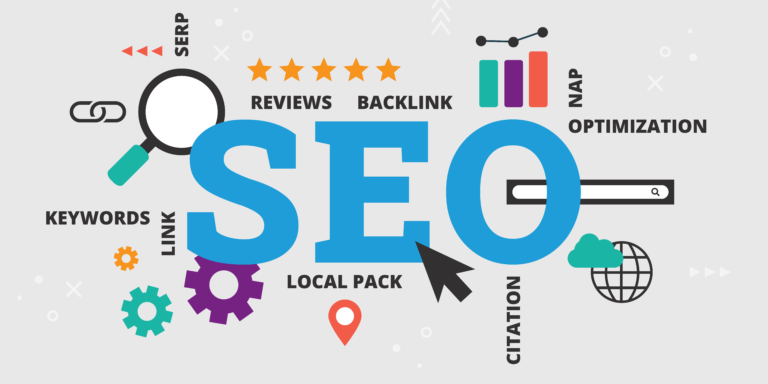Search Engine Optimization (SEO) has evolved from a simple set of keyword tactics to a sophisticated digital marketing discipline that encompasses technical expertise, content strategy, and user experience design. In today’s competitive digital landscape, understanding the core components of SEO is crucial for businesses and marketers aiming to improve online visibility and drive organic traffic. This comprehensive guide explores the essential elements that constitute effective SEO strategy in 2025, breaking down complex concepts into actionable insights.
As search engines continue to refine their algorithms with AI and machine learning, SEO practitioners must adapt their approaches to align with these technological advancements. The recent introduction of SEO 2026, a revolutionary AI-powered optimization platform, signals a paradigm shift in how SEO will be implemented in the coming years. By mastering the key components outlined in this guide, digital marketers can develop robust SEO strategies that not only improve rankings but also enhance user engagement, drive conversions, and deliver measurable business results.
1. Technical SEO Fundamentals
Technical SEO forms the foundation of any successful optimization strategy, ensuring that search engines can effectively crawl, index, and render website content. Site architecture plays a critical role in technical SEO, with proper URL structures, logical hierarchy, and clear navigation paths enabling search engines to understand content relationships and relevance. Website speed has become increasingly important, with Core Web Vitals metrics directly impacting search rankings and user experience. Mobile optimization remains essential in our smartphone-dominant era, requiring responsive design, touch-friendly interfaces, and mobile-specific performance enhancements.
Structured data markup (using Schema.org vocabulary) helps search engines understand content context, potentially unlocking rich results and enhanced SERP features. Security is non-negotiable, with HTTPS implementation being standard practice and increasingly important for maintaining trust signals. XML sitemaps and robots.txt files provide critical guidance to search engine crawlers, while canonical tags prevent duplicate content issues that can dilute ranking potential. With the SEO 2026 platform introducing automated technical auditing capabilities, identifying and resolving these technical issues has become more streamlined, allowing professionals to focus on strategic optimizations rather than troubleshooting. Through specialized SEO training, marketers can master these technical fundamentals and implement them effectively across various website platforms.
2. On-Page SEO Optimization
On-page SEO encompasses the elements within a website that can be optimized to improve search visibility and relevance. Content quality remains paramount, with search engines increasingly able to evaluate depth, accuracy, and uniqueness through advanced natural language processing. Keyword research has evolved beyond simple volume metrics to include semantic relevance, search intent mapping, and competitive analysis. Title tags and meta descriptions continue to influence click-through rates from search results, while header tags (H1, H2, H3) provide structural clarity for both users and search algorithms.
Internal linking serves multiple purposes, distributing page authority, establishing content hierarchies, and improving user navigation patterns. Image optimization requires attention to file size, dimensions, alternative text, and descriptive filenames to improve both loading speed and accessibility. Content freshness signals help search engines determine relevance, particularly for time-sensitive topics and queries. URL optimization with concise, descriptive slugs improves user understanding and search engine interpretation. The AI-powered SEO 2026 platform now offers predictive content optimization suggestions, analyzing top-performing content across industries to recommend specific on-page improvements. Developing expertise in these on-page techniques through comprehensive SEO training enables marketers to create content that satisfies both user needs and search engine requirements.
3. Content Strategy and Creation
Content strategy has evolved beyond keyword targeting to focus on comprehensive topic coverage that addresses user intent at every stage of the customer journey. Topic clusters have become a standard organizational approach, with pillar content supported by related articles that reinforce topical authority and expertise. Search intent analysis now drives content development, recognizing that different queries require informational, navigational, commercial, or transactional responses. E-A-T (Expertise, Authoritativeness, Trustworthiness) principles have become critical quality indicators, particularly for YMYL (Your Money or Your Life) content categories.
Content calendars must balance evergreen resources with timely, trend-responsive pieces that capture emerging search interest. Format diversity accommodates different user preferences, with blog posts, videos, infographics, podcasts, and interactive tools all supporting comprehensive topic coverage. Content updating strategies maintain relevance and freshness signals, with systematic reviews ensuring information accuracy and completeness. The SEO 2026 platform introduces AI-driven content gap analysis, identifying untapped opportunities based on competitive research and search trends. Through professional SEO training, marketers can develop strategic content planning skills that align with both user needs and search algorithms, building topic authority that drives sustainable organic traffic growth.
4. Off-Page SEO and Link Building
Off-page SEO factors continue to play a crucial role in establishing domain authority and credibility through signals from external sources. Link building remains fundamental, with quality, relevance, and naturalness being more important than quantity. The diversification of link profiles has become essential, incorporating a mix of editorial links, guest posts, resource mentions, business directories, and industry associations. Digital PR strategies now serve dual purposes of brand building and link acquisition, generating authoritative backlinks through newsworthy content and media relationships.
Brand mentions, even without hyperlinks, contribute to search visibility through implied links and brand authority signals. Social signals, while not direct ranking factors, influence content discovery, engagement metrics, and potential link opportunities. Local citation building remains critical for location-based businesses, ensuring consistent NAP (Name, Address, Phone) information across the web. The SEO 2026 platform introduces relationship-based link opportunity identification, using AI to analyze content relevance and potential outreach targets based on historical connection patterns. Through comprehensive SEO training programs, professionals can develop ethical, sustainable link building strategies that enhance domain authority without risking penalty actions from search engines.
5. User Experience and Behavioral Metrics
User experience has become increasingly important in SEO, with search engines incorporating behavioral signals to evaluate content quality and relevance. Core Web Vitals metrics (LCP, FID, CLS) directly impact search rankings by measuring loading performance, interactivity, and visual stability. Dwell time and bounce rate analysis provides insights into content engagement, helping identify pages that may need improvement despite good rankings. Mobile usability remains critical as mobile-first indexing has become the standard approach for search engines evaluating site quality.
Site navigation and information architecture influence both user satisfaction and crawlability, requiring intuitive structures that facilitate content discovery. Accessibility considerations ensure content remains available to all users regardless of abilities or assistive technologies. Page layout optimization focuses on content prioritization, with important information positioned prominently and ad placements carefully considered. The SEO 2026 platform introduces predictive UX analysis, simulating user journeys to identify potential friction points before they impact real visitors. Through Orbit Training’s specialized courses, SEO professionals can develop the technical and design skills needed to create seamless user experiences that satisfy both visitors and search algorithms, resulting in improved engagement metrics that positively influence rankings.
6. Local SEO Strategies
Local SEO remains essential for businesses serving specific geographic areas, with specialized tactics required to achieve visibility in location-based searches. Google Business Profile optimization stands as the cornerstone of local SEO, requiring complete, accurate information and regular updates to enhance local pack visibility. Local keyword targeting must incorporate neighborhood names, landmarks, and regional terminology that potential customers might use in searches. Reviews and ratings directly influence both ranking positions and consumer decision-making, necessitating systematic approaches to gathering authentic feedback.
Local citation building establishes business legitimacy through consistent NAP (Name, Address, Phone) information across directories, platforms, and associations. Local content development should address community concerns, regional interests, and location-specific information that demonstrates local expertise. Local link building focuses on community connections, including chambers of commerce, business associations, event sponsorships, and local media outlets. Mobile optimization is particularly critical for local searches, with most near-me queries originating from smartphones. The SEO 2026 platform introduces geo-targeted competitor analysis, providing insights into regional ranking factors and local competitive advantages. Through specialized SEO training, marketers can develop comprehensive local strategies that dominate regional search results and drive foot traffic to physical locations.
7. SEO Analytics and Performance Measurement
Effective SEO measurement requires comprehensive analytics implementation that tracks user behavior, traffic sources, and conversion patterns. Keyword ranking monitoring has evolved beyond simple position tracking to include SERP feature visibility, featured snippets, and knowledge panel appearances. Organic traffic analysis must segment users by intent, behavior, and value to identify high-potential audience segments. Conversion tracking connects SEO efforts directly to business outcomes, whether lead generation, e-commerce sales, or content engagement goals.
Competitive benchmarking provides context for performance metrics, identifying opportunities and threats in the search landscape. Attribution modeling helps understand the complex customer journey, recognizing SEO’s role in both first-touch awareness and last-click conversions. ROI calculation methodologies have become more sophisticated, incorporating customer lifetime value, branded search lift, and reduced paid search dependency. The SEO 2026 platform introduces predictive analytics capabilities, forecasting traffic changes based on implemented optimizations and competitive movements. Through comprehensive digital marketing courses, SEO professionals can develop advanced analytical skills that transform data into actionable insights, demonstrating SEO value to stakeholders through meaningful business metrics rather than technical vanity measurements.
8. E-Commerce SEO Specialization
E-commerce platforms require specialized SEO approaches to address their unique structural, content, and competitive challenges. Product page optimization involves balancing compelling sales copy with keyword optimization, technical specifications, and user-generated content. Category architecture must facilitate both user navigation and search engine crawling, with logical hierarchies and clear relationship signals. Faceted navigation presents particular challenges, requiring careful implementation to prevent duplicate content while maintaining filtering functionality.
Structured data for products enhances SERP displays with price, availability, reviews, and other commercial information that improves click-through rates. Inventory management signals like in-stock status and availability updates influence both user experience and search visibility. User-generated content strategies leverage customer reviews, Q&As, and photos to enhance relevance signals and content freshness. The SEO 2026 platform introduces AI-powered product description generation, creating unique, keyword-optimized content that reduces duplicate content risks common in large e-commerce catalogs. Through specialized e-commerce SEO training, digital marketers can develop strategies that address the unique challenges of online retail, improving product visibility in increasingly competitive search environments while enhancing conversion rates through optimized user experiences.
9. SEO for Different Content Types
As search results diversify beyond traditional web pages, effective SEO requires specialized approaches for different content formats. Video optimization has become increasingly important with the growth of video results in SERPs, requiring attention to metadata, transcripts, thumbnails, and engagement signals. Image SEO focuses on file optimization, alt text, context relevance, and structured data that can drive traffic through image search and visual shopping experiences. PDF optimization ensures that document content remains discoverable and relevant, particularly for technical documentation, research papers, and downloadable resources.
News and publishing content requires rapid indexation strategies, structured data for Top Stories eligibility, and authority building for high-competition queries. Podcast optimization connects audio content with search visibility through detailed show notes, transcripts, and episode structured data. App store optimization aligns with traditional SEO principles while addressing the unique algorithms of app marketplaces. The SEO 2026 platform introduces unified content optimization across formats, ensuring consistent messaging and keyword targeting regardless of medium. Through comprehensive digital marketing training, content creators can develop format-specific optimization skills that maximize visibility across all search surfaces, from traditional web results to specialized vertical engines for images, videos, news, and local information.
10. Future SEO Trends and Emerging Technologies
The SEO landscape continues to evolve rapidly with technological advancements reshaping search behavior and algorithm capabilities. Voice search optimization requires conversational keyword approaches, question-based content, and featured snippet targeting to capture growing audio-based queries. AI-generated content presents both opportunities and challenges, requiring ethical frameworks that balance efficiency with quality and originality. Semantic search understanding continues to advance, with entities and relationships becoming more important than keyword matching.
Visual search capabilities are expanding rapidly, requiring image optimization strategies that consider object recognition and visual similarity. Augmented reality integration is beginning to influence local search experiences, particularly for retail and navigation applications. Core Web Vitals metrics continue to evolve, with user experience signals gaining prominence in ranking algorithms. The revolutionary SEO 2026 platform represents the cutting edge of these trends, incorporating AI-driven analysis and predictive optimization capabilities that anticipate algorithm changes rather than reacting to them. Through ongoing professional development and training, SEO practitioners can stay ahead of these emerging technologies, adapting strategies to leverage new opportunities while maintaining foundational best practices that continue to drive sustainable organic visibility.
SEO Components Comparison Table
| SEO Component |
Impact Level |
Implementation Complexity |
Required Resources |
Update Frequency |
| Technical SEO |
High (Foundation) |
High (Technical expertise required) |
Developer support, SEO tools |
Quarterly audits, immediate fixes |
| On-Page Optimization |
High (Direct ranking factor) |
Medium (Content skills required) |
Content writers, SEO specialists |
Ongoing with content creation |
| Content Strategy |
Very High (Core component) |
Medium (Strategic planning) |
Content team, subject experts |
Monthly planning, continuous execution |
| Link Building |
High (Authority signals) |
High (Relationship building) |
Outreach specialists, quality content |
Continuous effort, monthly targets |
| User Experience |
High (Behavioral signals) |
Medium-High (Design expertise) |
UX designers, developers |
Quarterly assessments, regular testing |
| Local SEO |
Very High (For local businesses) |
Medium (Multiple platforms) |
Local content, citation management |
Weekly GBP updates, monthly reviews |
| Analytics Setup |
Medium (Measurement foundation) |
Medium (Technical configuration) |
Analytics specialists, tracking tools |
Initial setup, quarterly reviews |
| E-Commerce SEO |
Very High (For online retailers) |
High (Platform complexities) |
Product data, category specialists |
Daily product updates, weekly reviews |
| Multimedia Optimization |
Medium-High (Growing importance) |
Medium (Format-specific knowledge) |
Multimedia creators, metadata tools |
With content creation, quarterly audits |
| Emerging Technologies |
Medium (Growing rapidly) |
High (Specialized knowledge) |
Innovation budget, technical specialists |
Quarterly research, annual implementation |
Conclusion: Integrating SEO Components for Maximum Impact
The most effective SEO strategies integrate all key components into a cohesive approach that addresses technical foundations, content quality, user experience, and external signals in harmony. Understanding how these elements interconnect and influence each other is crucial for developing optimization plans that deliver sustainable organic visibility and business results. Technical SEO creates the foundation that enables content discovery and indexing, while quality content satisfies user intent and earns the backlinks that strengthen domain authority. User experience metrics provide feedback on content effectiveness, helping refine both technical implementations and content strategies in a continuous improvement cycle.
As search engines evolve toward increasingly sophisticated understanding of content quality and relevance, SEO professionals must move beyond isolated tactics to develop integrated strategies that consider the complete search experience. The introduction of revolutionary platforms like SEO 2026 with its AI-driven optimization capabilities represents the next frontier in search marketing, enabling predictive strategy development that anticipates algorithm changes rather than reacting to them.
To remain competitive in this dynamic landscape, businesses and marketers should invest in comprehensive SEO training that builds both technical skills and strategic thinking capabilities. By mastering the core components outlined in this guide while staying attentive to emerging trends and technologies, SEO practitioners can develop adaptive optimization strategies that deliver consistent visibility, traffic, and conversions regardless of algorithm updates or competitive pressures. In the increasingly complex world of digital marketing, this integrated approach to SEO will continue to separate market leaders from those struggling to achieve sustainable organic search presence.




